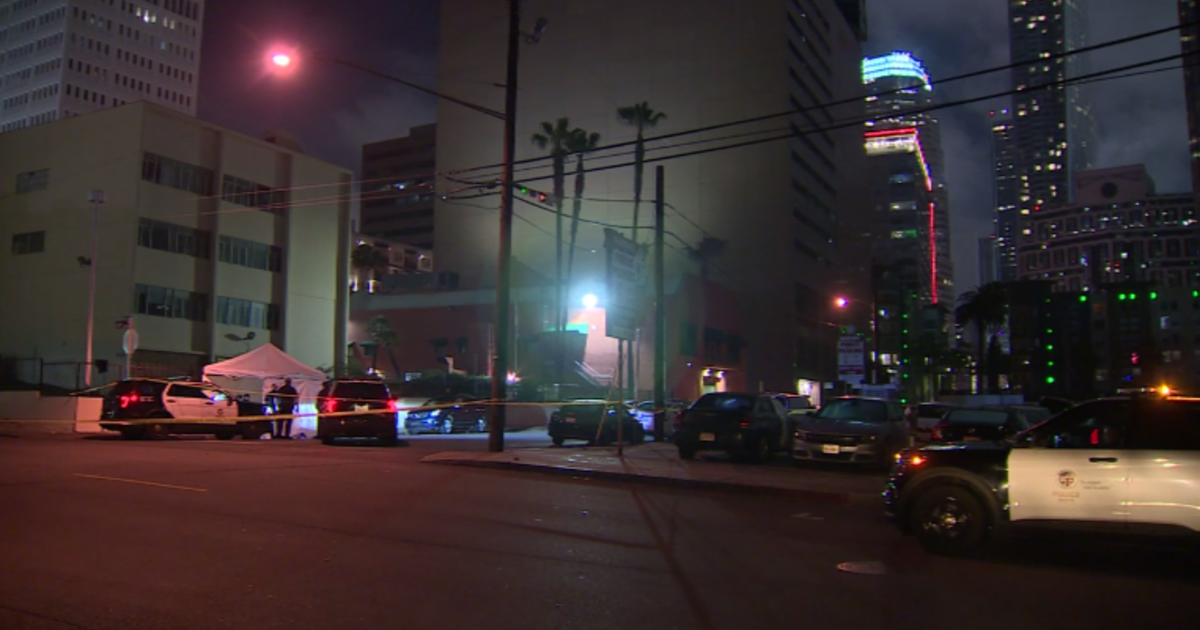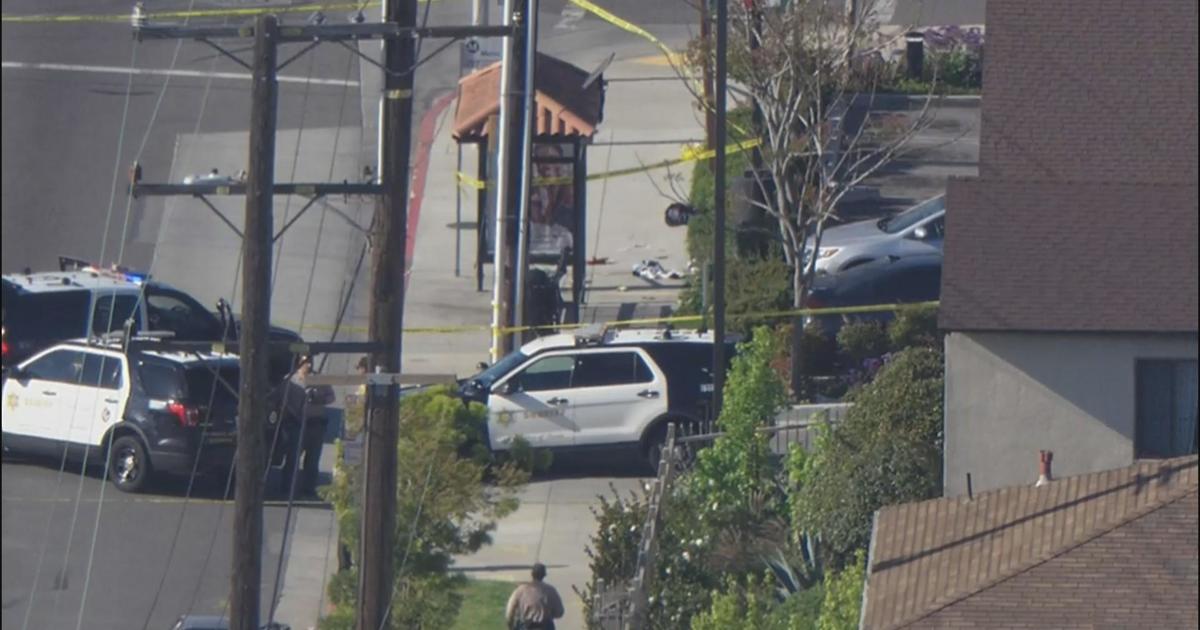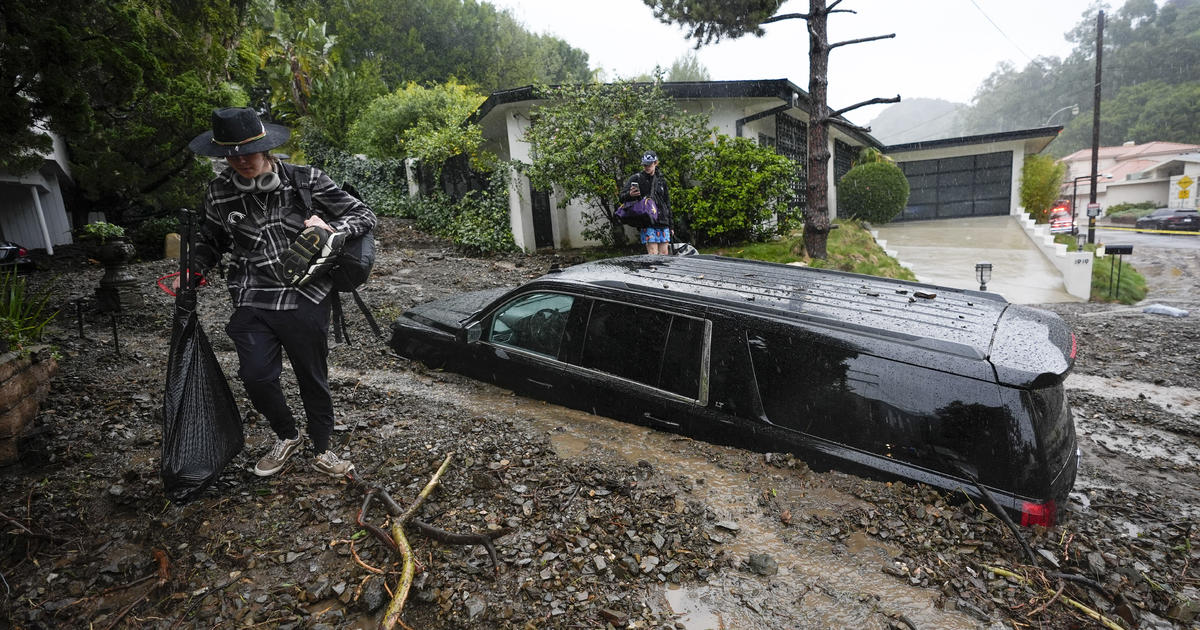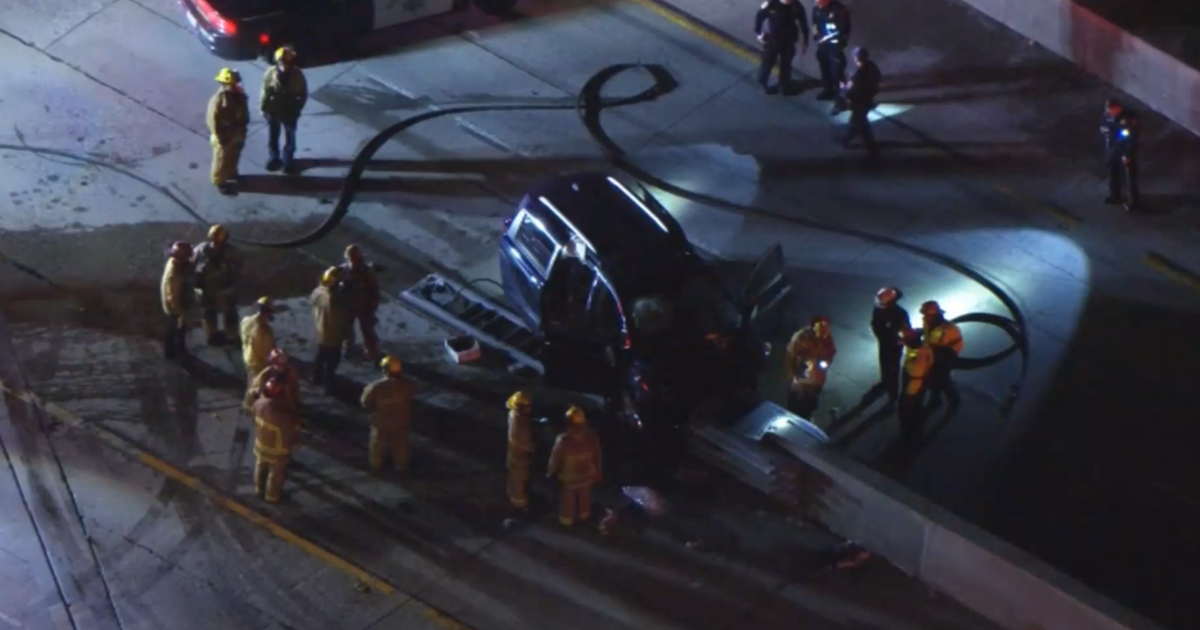Study: LA Clogs List Of Worst Bottlenecks Nationwide
LOS ANGELES (CBSLA.com) — A new study released Monday ranks Los Angeles as one of the worst traffic locations nationwide.
According to findings by the American Highway Users Alliance, the following areas in the L.A. region have far more bottlenecks than those of the 50 cities analyzed within the study:
— A daily backup of four miles along the 405 Freeway between State Route 22 and the 605 Freeway: more than seven million hours in delay and an estimated annual cost of $191 million;
— Nearly a seven-mile backup daily along the 10 Freeway between Santa Fe Avenue and Crenshaw Boulevard: nearly seven million hours in delay and an estimated annual cost of $187 million;
— A daily backup over five miles along the 405 Freeway between Venice and Wilshire boulevards: more than six million hours in delay and an estimated annual cost of $169 million;
— More than a four-mile backup along the 101 Freeway between Franklin Avenue and Glendale Boulevard: more than five million hours in delay and an estimated annual cost of $146 million;
— A daily backup of more than four miles along the 110 Freeway between Exposition Boulevard and Stadium Way: more than five million hours in delay and an estimated annual cost of $145 million; and
— Nearly a four-mile backup along the 101 Freeway between Sepulveda and Laurel Canyon boulevards: more than three million hours in delay and an estimated annual cost of $96 million.
Data showed that daily traffic on interstate freeways were either crawling or completely stopped in these areas.
"These findings are critically important and mean that our nation will derive huge benefits from fixing the worst gridlock in our nation's highway system; benefits that go way beyond improving mobility for highway users," said President and CEO of the American Highway Users Alliance Greg Cohen.
Other troubling areas across the country include New York City, Washington, D.C., Houston, Boston, Dallas, Miami, Atlanta, Philadelphia and San Francisco.
Chicago, Illinois ranked as the worst metropolitan area for traffic.
"While the rankings and specific bottleneck locations are important, this study has another important mission," Cohen said. "We want to give a voice to drivers that are desperate for relief. Our study estimates the annual societal costs caused by these bottlenecks. In doing so, it becomes clear that it costs us as a nation far less to fix these chokepoints than to keep paying the safety, environmental and time costs that accrue day in and day out, year in and year out."
Bottlenecks were ranked based on backups in both directions over the entire day and not just one direction during rush hours, according to researchers.
"The good news is that this problem is solvable and Congress can be a part of the solution," U.S. Transportation Secretary Anthony Foxx added. "As a long-term transportation bill moves through conference, I urge our elected leaders to provide the funding growth and policies that are necessary to improve commutes, to raise the bar for safety and to keep the country moving in the 21st century."
According to the report, if the top 30 bottlenecks are not fixed within the next 20 years, the economy will take a hit of roughly $39 billion due causes such as to shipping delays and idling cars emitting greenhouse gases.
Data for the survey came from the American Transportation Research Institute (ATRI) and HERE North America, LLC GPS probes.



